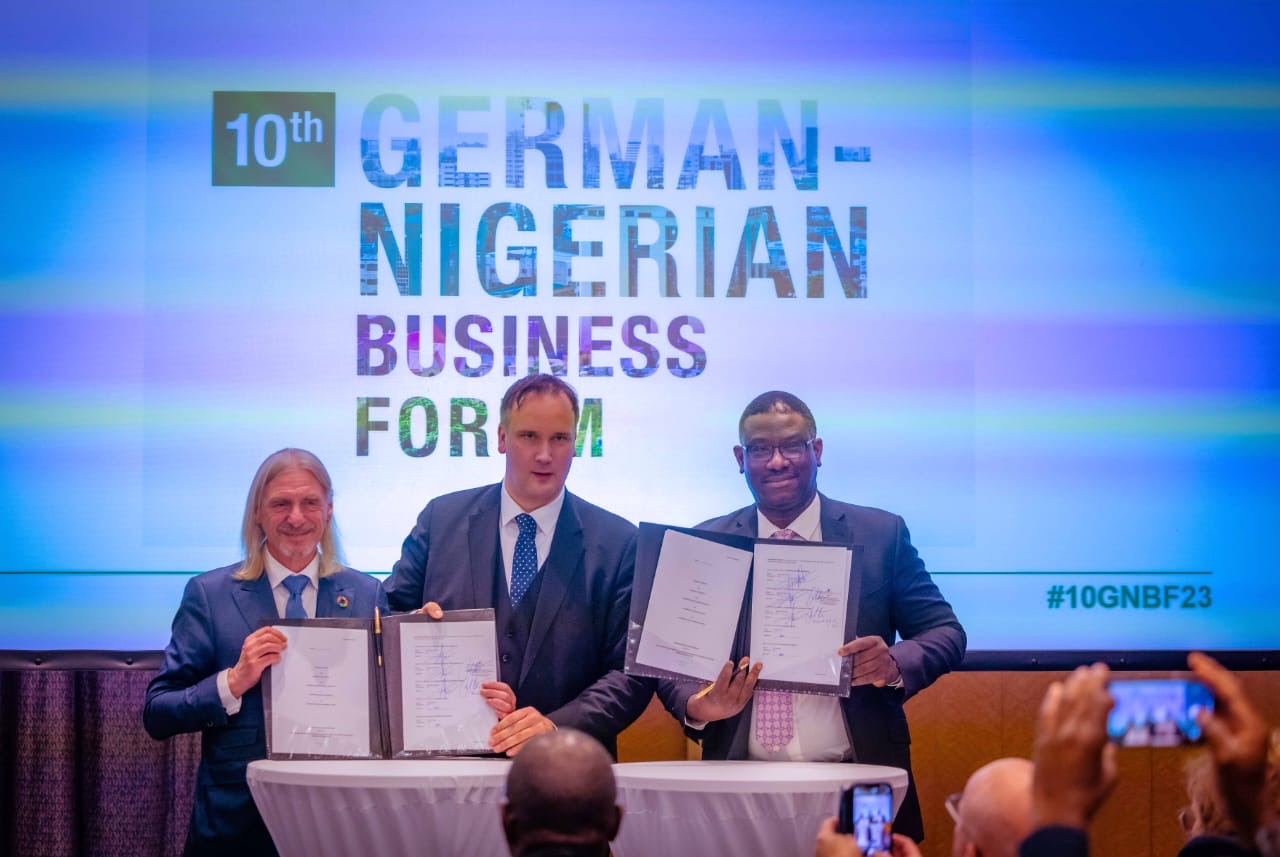In a groundbreaking move, Germany and Nigeria have solidified two pivotal accords, signifying a $500 million investment in renewable energy and marking the first-ever gas export deal between Africa’s largest oil producer and Europe’s foremost gas consumer. The agreements were formalised at the G20 Compact with Africa conference held in Berlin.
Read also: Ghana, WPI mark 10 year partnership on renewable energy
LNG Export Deal Unveiled: Nigeria and Germany Forge New Energy Partnership
At the heart of this historic development is the Memorandum of Understanding (MoU) signed between Nigeria’s Riverside LNG project, situated in the Niger Delta, and Germany’s Johannes Schuetze Energy Import. The essence of the agreement revolves around Nigeria exporting 850,000 tons of liquefied natural gas (LNG) to Germany, a volume set to increase to 1.2 million tons in subsequent phases. The significance of this deal is underscored by its status as the first-ever gas deal between the largest oil producer in Africa and the biggest gas consumer in Europe.
The deal is poised to contribute significantly to Germany’s energy landscape, constituting 2% of the country’s total LNG imports. The anticipated timeline for the first LNG delivery from Nigeria to Germany is 2026. Johannes Schuetze, Chairman of the German gas importer, remarked, “This is a further step towards diversifying German gas imports.” This move aligns with Germany’s strategic approach to fortify its energy portfolio by incorporating diversified sources.
Unlocking Nigeria’s Gas Reserves: Addressing Flaring Through Collaboration
The gas export agreement is not only economically substantial but also addresses environmental concerns. The deal is anticipated to process about 50 million cubic feet of natural gas daily, which would otherwise be flared. Nigeria, boasting one of the largest gas reserves in Africa, exceeding 200 trillion cubic feet, has grappled with the challenge of flaring approximately 300 million cubic feet due to a lack of adequate processing facilities.
The collaboration between Riverside LNG and Johannes Schuetze Energy Import represents a meaningful stride toward harnessing Nigeria’s gas potential, offering an eco-friendly solution to gas flaring.
Renewable Energy Boost: Union Bank of Nigeria and Germany’s DWS Group Seal $500 Million Pact
In tandem with the LNG export agreement, a second MoU was inked between the Union Bank of Nigeria and Germany’s DWS Group. This accord solidifies Germany’s commitment to invest $500 million (€459.9 million) in Nigeria’s renewable energy and technology projects. The emphasis will be on setting up projects primarily in rural communities, fostering inclusive development that brings more people into the formal economy.
German Chancellor Olaf Scholz, in a significant announcement, declared on Monday that Germany will invest €4 billion in Africa until 2030. This sizable investment aligns with Germany’s broader goals related to energy transition and sustainability. The infusion of funds into Nigeria’s renewable energy and technology projects is expected to contribute not only to the country’s economic development but also to Germany’s efforts in meeting its energy transition objectives.
The recent developments underscore Nigeria’s proactive approach under the leadership of Bola Tinubu, who assumed power in May. The country has been making bold strides with foreign investment deals and pivotal reforms, notably in areas such as fuel subsidies and currency controls. This aligns with Nigeria’s broader vision for economic growth and resilience on the global stage, particularly in the critical sectors of energy and technology.




